Blog

Voice to Nature – and the historian
History is about people. Not only do they make history, people’s well-being is also the measure by which we measure historical change – usually implicitly. But then, who writes the history of nature? Culture and society, the subjects the historian is primarily concerned with, are embedded in natural processes and eco-systems. Ecosystems that humans literally…
Read more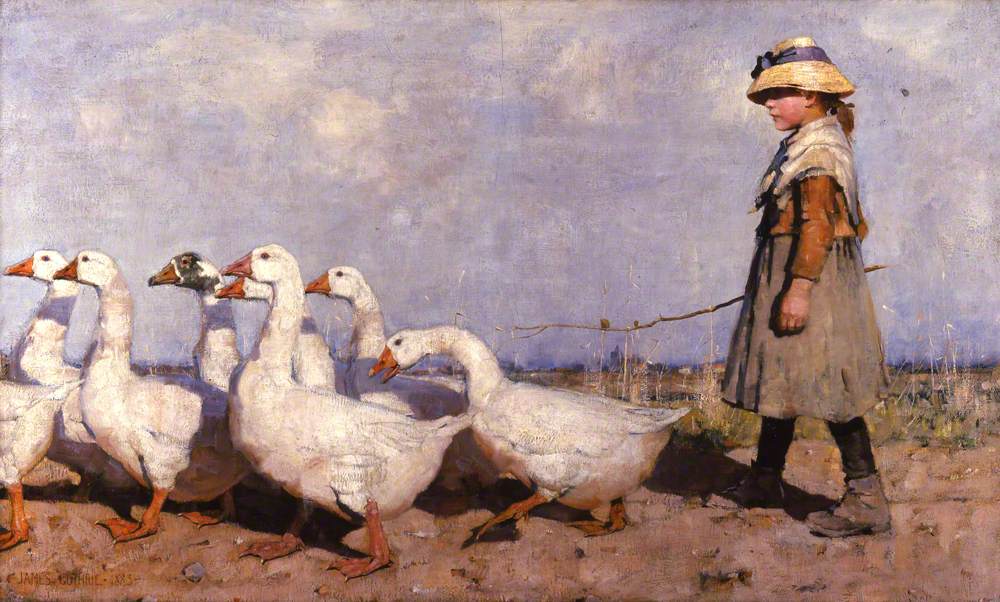
Teaching Tips
Terms started for Dutch universities on the 5th of September but many British universities only go back this week. For some universities this is the Michaelmas term, coinciding with and named for the week of the 29th of September, the Feast of Saint Michael and all Angels. The original biblical association is with the archangel…
Read more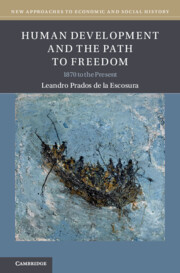
A silly debate? Leandro Prados de la Escosura’s contribution to the ‘beyond GDP’ debate
Review of Leandro Prados de la Escosura, Human Development and the Path to Freedom. 1870 to the Present. Cambridge UP, 2022. The notion that GDP is an imperfect guide to well-being is arguably as old as the concept itself. Its limitations were for example already discussed in detail by Simon Kuznets, and these issues were…
Read more
How to measure the impact of slavery on the early modern economy?
Written by Jan Luiten van Zanden NWO, the National Science Foundation of the Netherlands, has a usually rather boring glossy in which it presents the successes of the research funded by the organization. Recently, however, it published the summary of a debate, significantly printed in black and white, about the importance of the slave trade…
Read more
Books do not die: the price of information, Human Capital and the Black Death in the long fourteenth century
In this blog I will explain why I am busy working on trends in the prices of medieval hand-written books between circa 1250 and 1500. It may seem as escapism in these times of Corona, but because my time-window includes the Black Death – that killed approximately one third of the European population back then…
Read more
Netherlands blocking EU emergency fund for COVID-19
The plan for today was that I would give you an update of the garden (still in deep crisis) and then tell a bit about the new kid on the block, the robin, and the question where does his/her beauty come from. But politics intervened. Last Thursday our prime minister Rutte blocked in a not…
Read more
Made in Holland(?): Hoogovens IJmuiden/Tata Steel
Students of The Great Challenges specialisation ventured on a field trip to Tata Steel this week. The Dutch word for it, ‘schoolreisje’, makes it sound like we are back in preschool again, but this time our coach was filled with post-adolescents and even some actual adults. After some very minor delays we caught our first…
Read more
Podcast with Wolfgang Streeck: The Return of Capitalism
The podcast can be found both on iTunes and Soundcloud. The interview has been recorded as part of the bachelor course ‘Thinking about Capitalism: From Adam Smith to Thomas Piketty’. The essay below does not repeat or summarise the content of the podcast. Rather, it puts the work of Wolfgang Streeck and the podcast in…
Read more
From households to factories: Who makes our clothes?
An interesting concept in social science is “alienation”. We are unaware of how the products around us came into being and so we are alienated from the majority of products around us. Take our clothes, for example your t-shirt, jumper and jeans. Our clothes were historically made at home; cotton was farmed, spun and weaved on hand…
Read more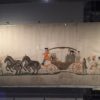
Happy New Year!
All the best wishes for 2018! On the 8th of December The Great Challenges specialisation package went on an excursion to the Hague. We visited the Scientific Council for Governmental Policy where Arthur van Riel told us about the work he does there as an economic historian. We then visited the National Archives and…
Read more
Inequality: Natural or not?
In a recently published piece in the Proceedings of the National Academy of Science Bas van Bavel (with co-authors from the Environmental Sciences department of Wageningen University) argues that maybe some of what we see in terms of contemporary rampant inequality stems from patterns to be observed in the natural world.
Read more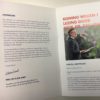
Is there a future for entrepreneurship in the current market economy?
On the 3rd of October 2017 our very own Bas van Bavel gave the King Willem 1 lecture. This was for a gathering of senior figures from the corporate world, as well as the royal couple who were brought together for the announcement of the winner of the Koning Willem 1 prize, the national prize…
Read more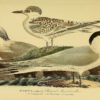
Ecological Armageddon?! What can historians do to help?
By Thomas van Goethem The Guardian raised some eyebrows with headlines such as ‘Warning of ‘ecological Armageddon’ after dramatic plunge in insect numbers’ and ‘Earth’s sixth mass extinction event under way, scientists warn’. The message is clear though: species are disappearing, and it matters! Biologists around the world report species loss across the board. The…
Read more
Dangerous misuse of historical data
UPDATE (01/12/2017): the article can now been accessed in a ‘ahead of print’ online version on the following URL https://wwwnc.cdc.gov/eid/article/24/1/17-0477_article In a recent blogpost on the current outbreak of plague in Madagascar, historian Monica Green wrote the following quote: ‘I see dead people. That’s my job. I’m a historian.’ This is also true for me,…
Read more
History by Numbers?
I spent the first semester of this academic year teaching a course called Growth and Inequality in a history master’s programme where we tackle quite a lot of economic history papers. I have now taught this course three times and taken it myself when I was a graduate student. The students who take this masters…
Read more
Filming…
Today I was in front of a green screen for the first time ever. I have only once been filmed professionally before, for the Antiques Roadshow (the BBC version) when I was ten and brought in my great-great Uncle’s Waterloo medal to the Sint-Nikolaaskerk in Amsterdam. In that clip I am largely mute, expressing surprise…
Read moreSCOOP
Deadline for applications for the SCOOP programme. 10 PhD positions, within the context of the SCOOP programme – Sustainable Cooperation – Roadmaps to a Resilient Society are currently open to applications. Positions 3 and 5 have an explicitly historical focus; 3: Accommodating Newcomers in the Labour Market 5: Running the Family Business: Stakeholders, Values and…
Read more
The importance of History (and broad university degrees)
As mentioned in the previous post I spent Friday and Saturday working at the open days of the History and PPE programmes. One of the things prospective history students get asked by their family and friends is what they’re going to do with their degree (the cliché question is do you want to be a…
Read more
Open days
Today I presented at the information sessions for two different degree programmes, the English language History BA we offer in Utrecht, and the new Politics, Philosophy, Economics and History (PPE+H) programme. It is always a positive experience to see new, enthusiastic students looking for the degree that will suit them best. Talking to prospective students…
Read more
Position of women 3: Venus and the disappearing goddesses
Yesterday the BBC broadcast a documentary called Venus Uncovered. In an article linked to the documentary Bettany Hughes sketches the evolution of the goddess Aphrodite/Venus over the centuries (here). This article was interesting for me, firstly as I’ve just taught a course in which two students wrote pieces on what are known as Venus figurines….
Read more
The Dutch Knowledge and Information Society
On the 21st of March next year the Netherlands will have a referendum on something that is generally referred to as the ‘sleepwet’. This bill proposes that the Dutch intelligence and security services, the AIVD and MIVD, should be authorized to collect and store data from citizens on a massive scale, regardless of whether they…
Read more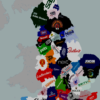
Who owns England?
An interesting resource and project I came across – Who owns England? and the related project website. For those interested in property rights and distribution of resources across a population worth taking a look. The visualisation is interesting as an example of how mapping can reveal interesting patterns. Another example of this can be found…
Read more
Position of women 2: Child Marriage American style
I came across this fascinating article on child marriage in the United States today – Married Young: The Fight over Child Marriage in America. (for the associated podcast see here). The account of Heather (15) and Aaron’s (24) marriage is an insight into a practice we often associate with far-flung corners of the world. What…
Read more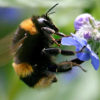
Book tips – Biodiversity and Bees
I was recently asked to write a book suggestion for the History bachelors newsletter. I found it very hard to limit myself to one book, so here I include my original suggestions with a connection to the topics covered by economic historians, as well as some additional fodder. So when I have time I’m an…
Read more
Seminar paper: Entrepreneurs and unicorns
Today our very own Selin Dilli presented in the seminar. Selin completed her PhD within the project “Agency, Gender, and Economic Development in the World Economy, 1800-2000” with a dissertation focused on measuring the position of women over the long term and a particular focus on women’s political participation. Her paper today was titled “The Diversity…
Read more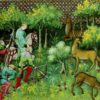
Piketty and the Charter of the Forest
With the recent publication of the Paradise papers yet another glimpse has been given into the ways the financially blessed avoid paying their fair dues back into society. It wasn’t as if we didn’t already know this. The coverage and revelations echo closely those as a result of the publication of the Panama papers last year. This…
Read more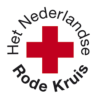
History of the Red Cross
A recent history of the Dutch Red Cross during WWII, for which Keetie Sluyterman of our department was on the supervisory committee, was published on the 1st of November. The conclusions were stark; the Red Cross in the Netherlands did next to nothing for Dutch Jews. To read more on the reason the book was…
Read more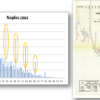
Age Heaping
Sometimes economic and social historians have to get creative when trying to answer interesting questions using historical data. One of the things we would really like to know is how skilled and/or educated people were in the past. Education, or more commonly in the economic history literature – human capital, is an important determinant of…
Read more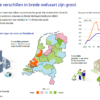
Measuring Welfare Broadly
On Friday the 27th of October, our very own Bas van Bavel and Auke Rijpma presented their collaborative work with Rabobank on a broad measure of welfare, to the provincial council of Brabant. This indicator aims to go beyond standard measures of growth (often construed as GDP) to cover many different variables that effect people’s…
Read more
Seminar paper: Planted towns
Seminar paper Kerstin Enflo and Alexandra López-Cermeno (Lund University), presented on the 2nd of November in our Autumnal seminar series. The modern imagination can conjure a number of examples of towns and cities established where formally there were none (or very small outposts). Huge cities appearing where very little had stood before; Brasilia springs to mind, as does Canberra….
Read more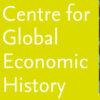
New CGEH WP – Benchmarking the Middle Ages – 15th century Tuscany in European Perspective
A new working paper just went up on our sister site the CGEH (Centre for Global Economic History). Written by Jan Luiten van Zanden, of our own group, together with Emanuele Felice of the University of Chieti-Pescari it explores new estimates of Gross Domestic Product – GDP (so how much an economy produces) for 15th century…
Read more
The cash book of the Netherlands
Guest post written by Dr. Corinne Boter: Most research on the financial history of the Netherlands tells the story from above, looking at the development of formal institutions such as banks and insurance companies. That is why we know very little about how ‘normal’ people used to manage their finances. In the project Kasboekje…
Read more
Hive-mind: Best Economic History articles for Bachelors students
Recently we did a hive mind exercise with the group of scholars who work in the Economic and Social history group at Utrecht University. I had been asked to look at a research methods course manual for second year undergraduate students, and provide a recommendation for an article that was quantitative in nature, reflected recent…
Read more
Book of Hywel Dda
The original inhabitants of the British Isles were, by successive waves of invasion by Anglo-Saxons and Vikings, pushed slowly into what became the Welsh kingdom. Here they codified their laws and customs, many of which ran counter to those developing in England at the time. We can see this in the book of Hywel Dda…
Read more
Agency book
Jan Luiten van Zanden, Auke Rijpma and Jan Kok (eds.) recently released the book Agency, Gender and Economic Development in the World Economy 1850-2000, Routledge. This book is the culmination of the research project of the same name conducted at Utrecht University and Radboud University Nijmegen. Working with Selin Dilli, Lotte van der Vleuten and…
Read more
Position of women 1: Child brides
For some marriage is seen as the ultimate rite of passage for young women, an indication of reaching adulthood. In America, and countries heavily influenced by Anglo-American culture, the ubiquitous white dress, diamond rings and expensive ceremonies have become almost mandatory. Over 36 million people watched the coverage of the royal wedding depicted above. However…
Read more
History of (un)happiness
By Jan Luiten van Zanden Someone who commits suicide is extremely unhappy. The happiness industry has also made abundantly clear that people are unhappy The number of victims of violent crime has plummeted. Have we become madder since Freud? How did people feel in the past? Suicide, prisons and psychiatric patients. A history of…
Read more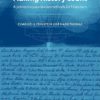
Best books for teaching quantitative methods to historians?
I have been looking into books for teaching quantitative historical methods to undergraduate students. In general the experience with exposing history students to numerical content is mixed. I therefore need a book that doesn’t presume that students would want to take a quantitative approach and which somehow makes numbers come alive in the way that…
Read more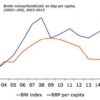
December 2016 – First integrated Dutch well-being indicator launched
One from the archives: Economic growth not translating into well-being of Dutch households The prosperity and well-being of Dutch households has hardly risen in recent years, despite the economic growth in the same period. This is revealed by Rabobank and Utrecht University’s Comprehensive Indicator of Well-being, which was presented today. This indicator is an…
Read more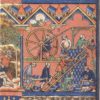
Mills, Cranes and the Great Divergence
Watermills, windmills, building cranes and harbour cranes were the high-tech inventions of the Middle Ages: expensive, but labour-saving machines that could raise labour productivity significantly. In an article in Economic History Review Bas van Bavel, Eltjo Buringh and Jessica Dijkman compare the prevalence of mills and cranes in medieval western Europe and the Middle…
Read more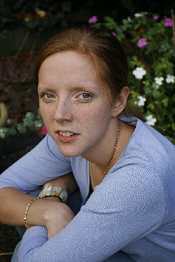
Start of a new year
The start of the new academic year is drawing ever closer and slowly Utrecht is filling up with students and university employees again. The absence of many Utrechters is most noticeable in the summer months when the bike jams at various bottlenecks shrink dramatically in size but now the exchange students are very much in evidence,…
Read more
Trump and the end of globalisation
After the upheaval of the American presidential election Jan Luiten van Zanden provides his interpretation of events. Towards the end of the 19th century globalisation led to increasing tensions between countries which culminated in a backlash against international collaboration. If we are not careful history may well repeat itself. The current losers of the economic system…
Read more
